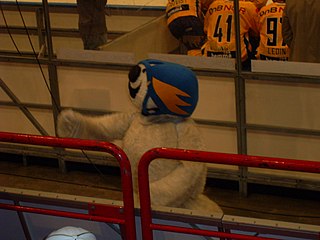
The 1995 Men's Ice Hockey World Championships was the 59th such event sanctioned by the International Ice Hockey Federation (IIHF). Teams representing 39 countries participated in several levels of competition. The competition also served as qualifications for group placements in the 1996 competition.

The 1997 Men's Ice Hockey World Championships was the 61st such event sanctioned by the International Ice Hockey Federation (IIHF). Teams representing 36 countries participated in several levels of competition, while three other teams competed in an exhibition tournament to gain experience before joining on an official basis in the 1998 competition. The competition also served as qualifications for group placements in the 1998 competition.
The 1996 Men's Ice Hockey World Championships was the 60th such event sanctioned by the International Ice Hockey Federation (IIHF). Teams representing 36 countries participated in several levels of competition, with Slovakia making their first appearance in the top Champions Group A, in their fourth tournament since the dissolution of Czechoslovakia and the formation of the separate Czech Republic and Slovakia men's national ice hockey teams. The competition also served as qualifications for group placements in the 1997 competition.

The 1994 Men's Ice Hockey World Championships was the 58th such event sanctioned by the International Ice Hockey Federation (IIHF). Teams representing 35 countries participated in several levels of competition, with an additional two national teams failing to advance from a mid-season preliminary qualifying tournament. The competition also served as qualifications for group placements in the 1995 competition.

The 1993 Men's Ice Hockey World Championships was the 57th such event sanctioned by the International Ice Hockey Federation (IIHF). Teams representing 32 countries participated in several levels of competition, with an additional six national teams failing to advance from mid-season preliminary qualifying tournaments. The competition also served as qualifications for group placements in the 1994 competition.

The 1991 Men's Ice Hockey World Championships was the 55th such event sanctioned by the International Ice Hockey Federation (IIHF), and at the same time served as the 66th and last Ice Hockey European Championships. Teams representing 25 countries participated in several levels of competition. The competition also served as qualifications for group placements in the 1992 competition.
The 1990 Men's Ice Hockey World Championships was the 54th such event sanctioned by the International Ice Hockey Federation (IIHF), and at the same time served as the 65th Ice Hockey European Championships. Teams representing 28 countries participated in several levels of competition. The competition also served as qualifications for group placements in the 1991 competition.
The 1987 Ice Hockey World Championships was the 52nd such event hosted by the International Ice Hockey Federation. It was also the 63rd European Championships. Teams representing 28 countries participated in four levels of competition.

The 1986 Ice Hockey World Championships took place in the Soviet Union from 12 to 28 April. The games were played at the Luzhniki Palace of Sports and the CSKA Ice Palace in Moscow, and eight teams took part. Each team played each other once, and then The four best teams then played each other once more with no results carrying over, and the other four teams played each other again to determine ranking and relegation. This was the 51st World Championships, and also the 62nd ice hockey European Championships. The reigning world champions from Czechoslovakia finished fifth, and the Soviet Union became World Champions for the 20th time, and also won their 24th European Championship. In the European Championship, only mutual games between European teams in the first round were counted. For the disappointing Czechoslovaks, this was the first time since 1967 that they had finished out of the medals, and their worst result outside the Olympics since 1937.

The 1985 Ice Hockey World Championships took place in Prague, Czechoslovakia from 17 April to 3 May. Eight teams took part, with each team playing each other once. The four best teams then played each other once more with no results carrying over, and the other four teams played each other again to determine ranking and relegation. This was the 50th World Championships, and also the 61st European Championships of ice hockey. The home side, Czechoslovakia, became world champions for the 6th time, and the Soviet Union won their 23rd European title. For the European Championship, only games between European sides in the first round are included.
The 1982 Ice Hockey World Championships took place in Finland from the 15 April to the 29 April. The games were played in Helsinki and Tampere with eight teams playing a single round-robin, followed by the top four teams playing each other once more. This was the 48th World Championships, and also the 59th European Championships of ice hockey. The Soviet Union became World Champions for the 18th time, and also won their 21st European Championship.
The 1978 Ice Hockey World Championships took place in Prague, Czechoslovakia from 26 April to 14 May. Eight teams took part, with each team playing each other once in the first round, and then the four best teams meeting in a new round. This was the 45th World Championships, and also the 56th European Championships. The USSR won for the 15th time, narrowly defeating the incumbent Czechoslovaks.
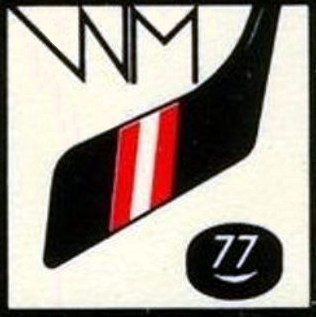
The 1977 Ice Hockey World Championships took place in Vienna, Austria from 21 April to 8 May. Eight teams took part, first playing each other once, then the four best teams advancing to a new round. The tournament was also the 55th ice hockey European Championship. Czechoslovakia won for the fifth time, and second in a row, claiming their 14th and final European title as well.
The 1976 Ice Hockey World Championships were the 43rd Ice Hockey World Championships and the 54th European Championships in ice hockey. The tournament took place in Poland from 8 to 25 April, and the games were played in Katowice. Eight teams took part in the main tournament, with each team first playing each other once. The four best teams then took part in a medal play off, and the teams placed 5–8 took part in a relegation play-off. The teams took the results from the first round through to the second round with them.
The 1975 Ice Hockey World Championships were the 42nd Ice Hockey World Championships and the 53rd European Championships of ice hockey. The tournament took place in West Germany from 3 to 19 April and the games were played in Munich and Düsseldorf. Six teams took part in the main tournament, each playing each other twice. The Soviet Union won all of their games, and became World Champions for the 14th time, and won their 17th European title.
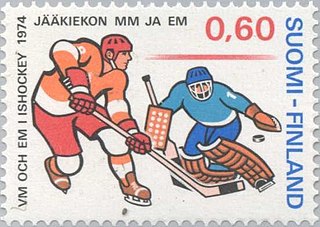
The 1974 Ice Hockey World Championships were the 41st Ice Hockey World Championships and the 52nd European Championships in ice hockey. The tournament took place in Finland from 5 to 20 April and the games were played in the capital, Helsinki. Six teams took part in the main tournament, all playing each other twice. The Soviet Union won the world championships for the 13th time, and also won their 16th European title.
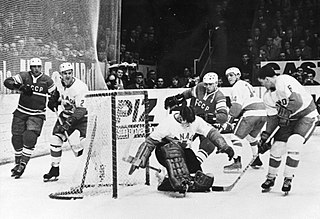
The 1967 Ice Hockey World Championships was the 34th edition of the Ice Hockey World Championships. The tournament was held in Vienna, Austria from March 18 to March 29, 1967. The Soviet Union won the tournament for the fifth straight year, Sweden won the silver medal, and Canada claimed the bronze medal.

The 1966 Ice Hockey World Championships was the 33rd edition of the Ice Hockey World Championships. The tournament was held in Hala Tivoli, Ljubljana, SR Slovenia, SFR Yugoslavia from 3 to 14 March 1966. For the fourth straight year, the Soviet Union won the tournament. For the Soviets, it was their sixth World and tenth European title. Czechoslovakia beat both Canada and Sweden two to one, to take the Silver, while the Swedes' historic loss to East Germany helped put them fourth behind Canada for the Bronze.

The 2003 IIHF World Championship was held between 26 April and 11 May 2003 in Helsinki, Tampere and Turku, Finland.
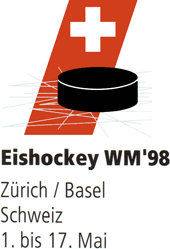
The 1998 IIHF World Championship was held in Switzerland from 1–17 May 1998. The format expanded to 16 teams for the first time. The teams were divided into four groups of four with the top two teams in each advancing to the next round. The two groups of four then played a round robin with the top two teams in each moving on to the semi-finals. The semi-finals were a two-game total goals for series as was the final.












